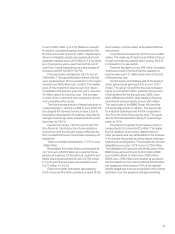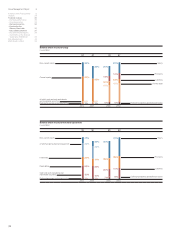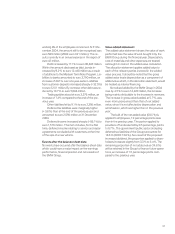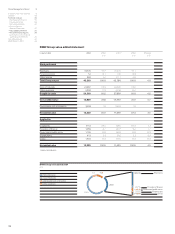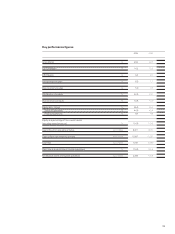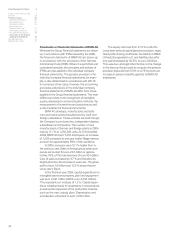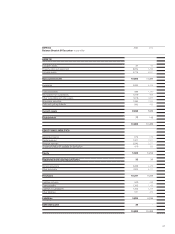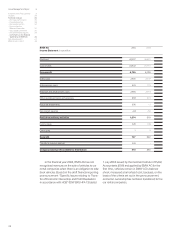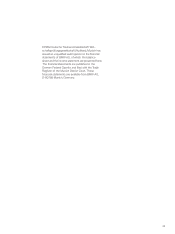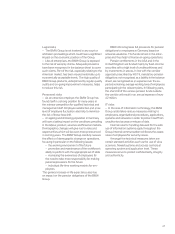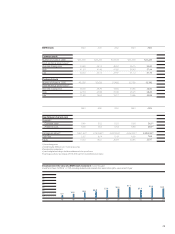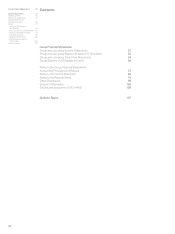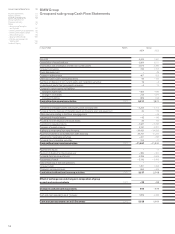BMW 2004 Annual Report Download - page 46
Download and view the complete annual report
Please find page 46 of the 2004 BMW annual report below. You can navigate through the pages in the report by either clicking on the pages listed below, or by using the keyword search tool below to find specific information within the annual report.45
entered into only with financial partners of first-class
standing. The nature and scope of such measures
are set out in guidelines applicable throughout the
BMW Group.
– Changes in the international raw material markets
also have an impact on the business development
of the BMW Group. In order to safeguard the supply
of production materials and to minimise the cost
risk, all commodity markets which are relevant for
the BMW Group are continually observed. Purchase
contracts for major raw materials, such as steel and
aluminium, sometimes run for several years, thus
contributing to a reduction in risk. Also important in
this context is the market price trend of precious
metals such as platinum, palladium and rhodium,
for
which appropriate hedging strategies are decided
by the Raw Materials Committee.
– Changes in the price of crude oil, as an important
basic material for components, have an indirect
impact on production cost. Long-term supply con-
tracts in this area also serve to mitigate risk. As a
manufacturing enterprise, the BMW Group is also
affected by changes in energy prices, caused by
market factors and tax legislation.
– Cyclical economic volatility presents an element
of risk for future business development. Unfore-
seeable interventionist economic policies can also
impair the BMW Group’s performance in specific
markets. The BMW Group anticipates these risks
by monitoring the markets in detail and using early
warning indicators. Risk is also spread due to the
worldwide nature of the BMW Group’s activities.
– An escalation of political tensions or terrorist activi-
ties could have a negative impact on the economic
situation, which in turn could have a negative impact
on the business development of the BMW Group.
Specific industry risks
– The EU End-of-Life Vehicle Directive from the
year 2000 requires manufacturers to take back and
recycle all own-brand vehicles when they reach
the end of their lives.The BMW Group continued in
2004 to recognise provisions for all new vehicles
sold in European Union countries.The addition of
ten new member countries to the European Union
in May 2004 means that the EU End-of-Life Vehicle
Directive is now applicable in 25 countries. The
BMW
Group had already taken account of its vehicles
in the new member states in previous years for the
purposes of measuring the risk of recycling own-
brand vehicles, so that such risks are comprehen-
sively covered. The BMW Group closely follows new
global developments relating to end-of-life vehicle
recycling issues and integrates potential effects at
an early stage into the Group’s strategic plans.
– The change in fuel prices, partly affected by the
market and partly by governmental tax policies, and
the requirement to reduce fleet fuel consumption
and CO2emissions, all set high demands on engine
and product development.
Operating risks
– Risks arising from business interruption and loss
of production are insured up to economically rea-
sonable levels. The high degree of flexibility of the
BMW Group’s production network and working time
models also help to reduce risks of this kind.
– Close cooperation between manufacturers and
suppliers is normal in the automotive sector and
whilst this provides economic benefits, it also creates
a degree of mutual dependence. Some suppliers
have become very important for the BMW Group’s
production capabilities. Delivery delays, cancellations,


